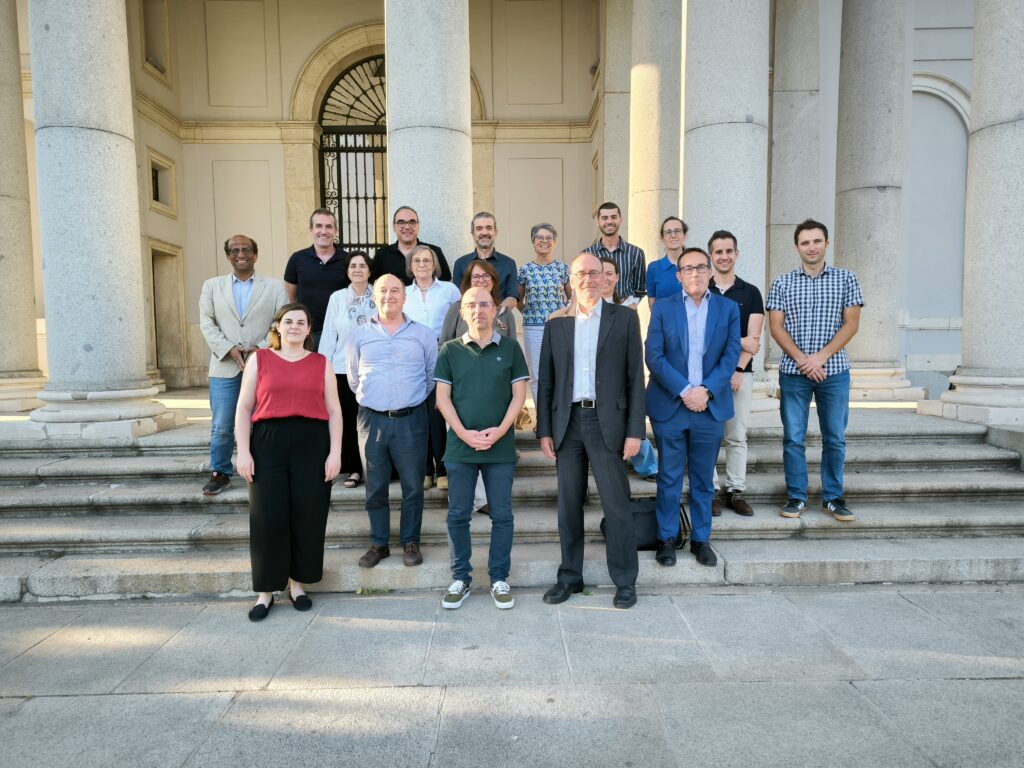RAEGE Scientific-Technical Advisory Committee Meeting at the Royal Observatory of Madrid
On May 28 and 29, the Scientific-Technical Advisory Committee meeting for the Atlantic Network of Geodynamic and Space Stations (RAEGE) project took place at the Royal Observatory of Madrid. The conference brought together national and international experts in geodesy and astronomy to discuss the progress and challenges of the project in Spain and Portugal (Azores).
The experts in attendance were Harald Schuh (elected as chair), José Afonso (elected as vice-chair), Luisa Bastos, Machiel Bos, José Manuel Ferrándiz, Michael Lindqvist, Ángel Esteban Martín Furones, Cristina García Miró, and Helena Ribeiro.
The meeting was divided into two days: the first day featured an open session where the RAEGE technical staff presented the status of various areas covered by the RAEGE project to the committee of experts. The second day was a closed session for committee members to share relevant technical recommendations for the ongoing development of RAEGE and the exploitation of the valuable scientific data and technological opportunities provided by this strategic project.
During the open session, the progress of the RAEGE project at each station, including RAEGE Yebes, the future RAEGE Temisas station in Gran Canaria, and the Santa Maria and Flores stations in the Azores, Portugal, was presented. A comprehensive overview of the new GGOS Affiliate, called GGOS IberAtlantic, was also provided, highlighting another step in scientific-technical cooperation, analysis, and research activities between Spain and Portugal.
Technological and operational innovations in VGOS receivers, the state of the VLBI signal correlator, and the initial steps of the YLARA station, which will transform the Yebes observatory into the first fundamental GGOS station in Spain, were showcased. Additionally, the integration of various space geodesy techniques at the RAEGE stations was demonstrated.
Discussions also covered gravimetry with superconducting instruments at the RAEGE stations and their valuable contributions to combining geometric and physical studies of the Earth. Finally, the potential of the RAEGE stations for studies in astronomy and astrophysics was highlighted.
The meeting concluded with an open discussion on strategies and approaches for future projects, where attendees exchanged ideas and proposals.
By the end of June 2024, it is expected that the Scientific-Technical Advisory Committee will deliver its report of recommendations and lines of work to guide the RAEGE network in the coming years.
For more information about RAEGE, visit https://raege.eu/

